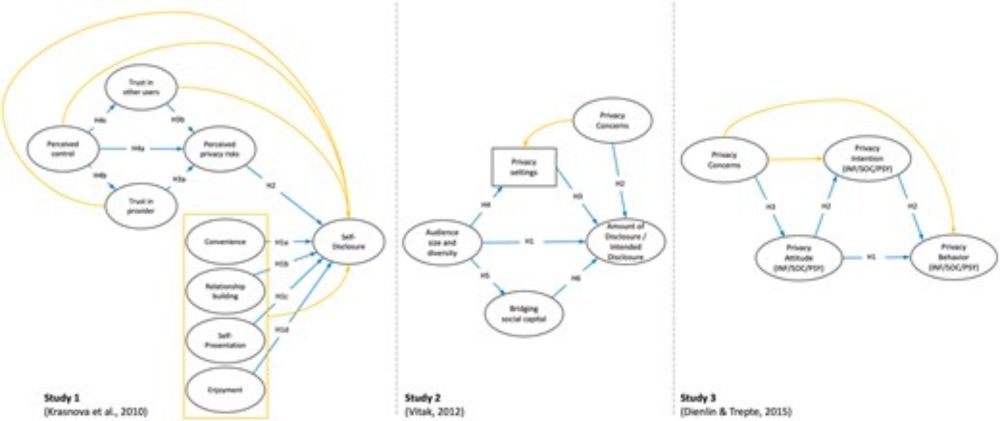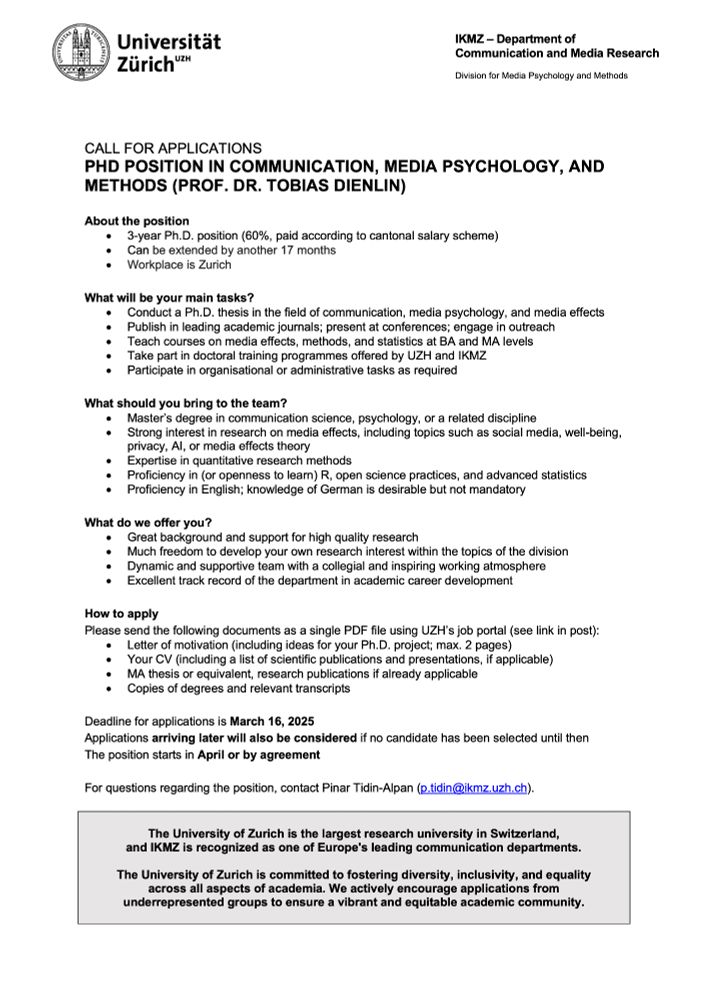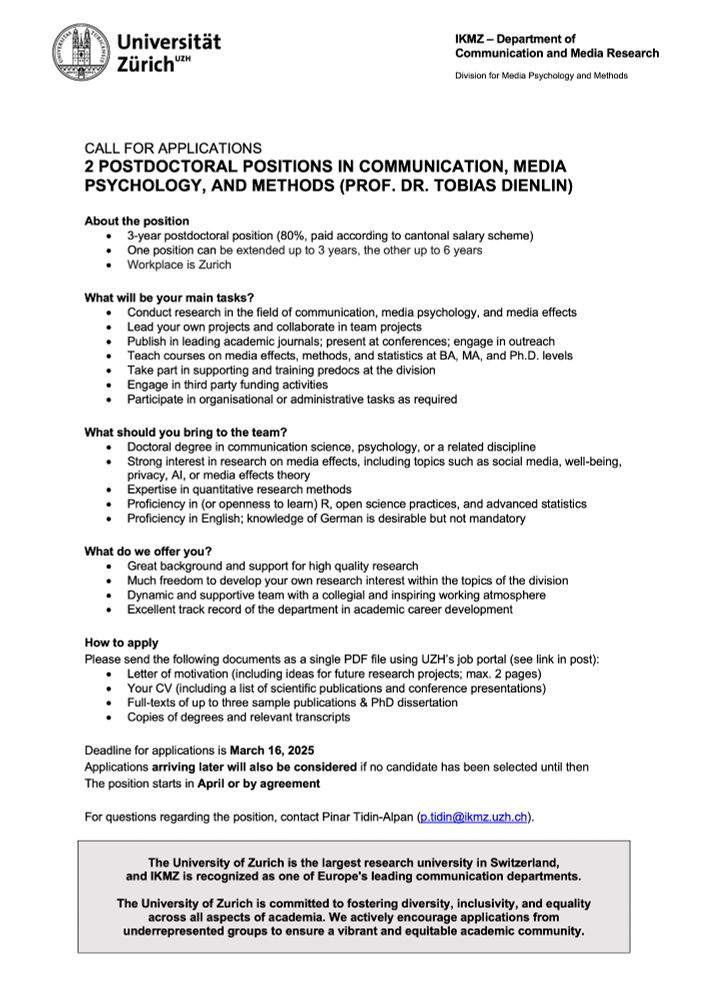
Associate Professor at VU Amsterdam | digital communication, privacy, social influence & media literacy | Director of the Digital Media and Behavior Lab - www.dmb-lab.nl | More on: www.philippmasur.de
New paper with @masurphil.bsky.social in Human Communication Research! In a longitudinal panel study, we connect chilling effects research with the concepts of privacy cynicism and critical privacy literacy: doi.org/10.1093/hcr/...
Short 🧵 about what we found👇

Reposted by Philipp K. Masur

New paper with @masurphil.bsky.social in Human Communication Research! In a longitudinal panel study, we connect chilling effects research with the concepts of privacy cynicism and critical privacy literacy: doi.org/10.1093/hcr/...
Short 🧵 about what we found👇


Link: osf.io/preprints/ps...
(9/end)
(8/9)

(7/9)
(6/9)

(5/9)

(4/9)
(3/9)
(2/9)

Together with @dougaparry.bsky.social, I just published a new preprint experimentally examining how specific normative cues on social media shape self-disclosure using an innovative simulation approach.
Link: osf.io/preprints/ps...
Read on for more information (1/9) 👇
Reposted by Philipp K. Masur

Lucien Heitz, @masurphil.bsky.social, @judith-moeller.bsky.social, @vanatteveldt.com & me ran a 1-week long field experiment to test if we can nudge people to read (and learn from) environmental news.
doi.org/10.1093/joc/...
journals.sagepub.com/topic/collec...
w/ @lutzid.bsky.social, Lemi Baruh, Kelly Quinn, @masurphil.bsky.social, Carsten Wilhelm (comparativeprivacy.org)
(4/4)
(3/4)
🔹 Krasnova et al. (2010) on the privacy calculus
🔹 Vitak (2012) on context collapse
🔹 Dienlin & Trepte (2015) on the privacy paradox
(2/4)
Reposted by Peter Kerkhof

Really happy to share that our article “Privacy calculus, privacy paradox, and context collapse: A replication of three key studies in communication privacy research” is now published in the Journal of Communication.
Full article: doi.org/10.1093/joc/...
(1/4)
Reposted by Philipp K. Masur

Philipp K. Masur @masurphil.bsky.social , Emma Diel
Communication Science, Vrije Universiteit Amsterdam, Haarlem, Netherlands
#ica25

Reposted by Philipp K. Masur

Philipp K. Masur @masurphil.bsky.social , Emma Diel
Communication Science, Vrije Universiteit Amsterdam, Haarlem, Netherlands
#ica25
If you're fascinated by media effects, quantitative methods, and open science, please consider applying 🙂
International applications welcome!
Application Pre-doc: jobs.uzh.ch/job-vacancie...
Application Post-doc: jobs.uzh.ch/job-vacancie...




If you're fascinated by media effects, quantitative methods, and open science, please consider applying 🙂
International applications welcome!
Application Pre-doc: jobs.uzh.ch/job-vacancie...
Application Post-doc: jobs.uzh.ch/job-vacancie...
Reposted by Wouter van Atteveldt, Philipp K. Masur

Last week, we kicked off our project WHAT-IF, setting the stage to build a digital twin that will help us test the impact of policy interventions.
More in the 🧵!
The paper resulted from discussion within the comparative privacy research network. For more info, check out: comparativeprivacy.org

